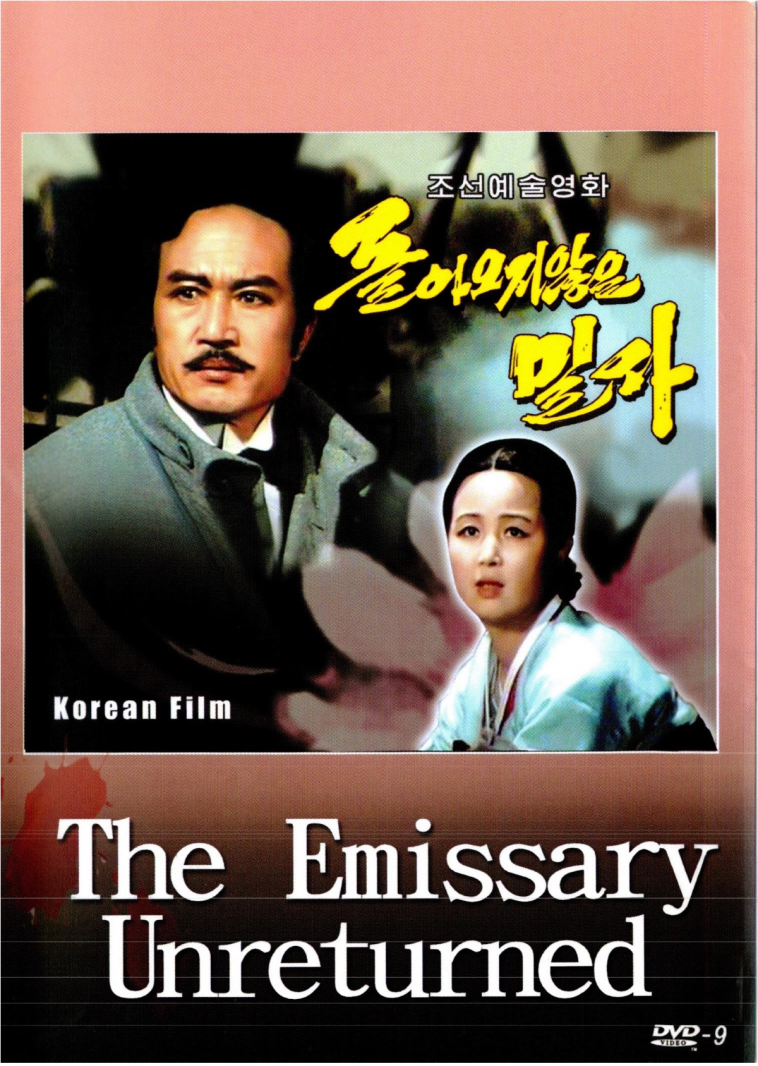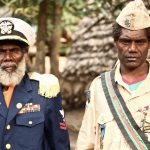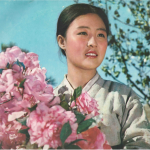Dir. Choi Eun Hee and Shin Sang Ok, 1984
No Korean synopsis available.

Shin Sang Ok and Choi Eun Hee on set in North Korea
In the late 1970s, Kim Jong Il, frustrated by stagnation in North Korea’s film industry, arranged an elaborate ruse to kidnap Shin Sang Ok, once one of South Korea’s most famous directors, and his ex-wife Choi Eun Hee, once one of South Korea’s most famous actresses. When satisfied with the couple’s ideological education, the Dear Leader gave them carte blanche and a blank check to bring prestige and international recognition to North Korean cinema. After delivering several successful films, the Dear Leader was so impressed that he spared no expense for Shin’s films. He once famously delivered to Shin a real train packed with explosives to blow up in a film. Soon, the couple convinced Kim Jong Il to allow them to open a film office in Vienna where, in 1986, they absconded with a large amount of Kim’s cash and defected to the West.
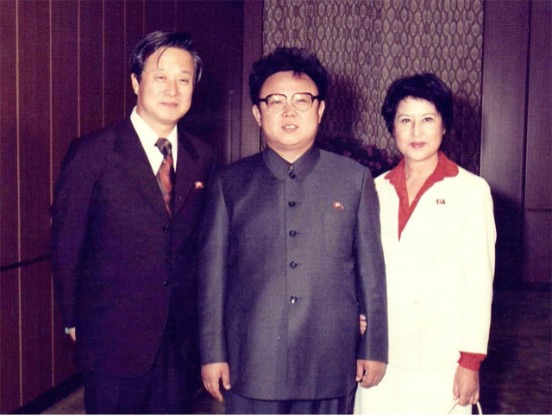
Shin and Choi detailed the alleged kidnapping in their own lengthy Korean-language autobiography Our Escape Has Not Yet Ended. The story has been covered in Paul Fischer’s Englishlanguage book A Kim Jong Il Production and in the recent documentary The Lovers and the Despot. However, critics of their story have pointed out that though Shin was once one of South Korea’s most heralded filmmakers in South Korea, the ROK government had revoked his filmmaking license in 1975, three years prior to his 1978 arrival north of the DMZ. Additionally, Shin’s close friend, Japanese journalist Tetsuo Nishida, claimed in his book Fictional Image that prior to his disappearance, Shin had told Nishida that he had received an offer to make films for the North. Whatever you think of how Shin got to North Korea, his impact of the country’s cinema is undeniable.
Though Shin and Choi’s names have been removed, the Emissary Unreturned is the only film by Shin Sang Ok found easily in the DPRK on DVD (though strangely absent in the DPRK 2016 film catalog, Korean Film Art). This historical drama is based on the play Hyolbun Mangukhoe (Resentment at the World Conference), reportedly also written by Kim Il Sung and elevated to the status of one of the country’s five great revolutionary plays. Shin elected to give Choi directing credit, and she won the
Special Jury Prize for Best Director at the 1984 Karlovy International Film Festival. At the same festival, Shin and Choi held a press conference in which they announced that they had willingly defected to the North. The film also played on London. Though the screening was picketed by South Koreans, it was reviewed positively as “a broad, oriental-flavoured theme in guises ranging from the march-like to patriotic and romantic for its story of Korean heroism at the turn of the century – a major surprise.”
The story details the efforts of three Korean emissaries at the 1907 Second Hague Peace Convention, dispatched in secret by the Choson Dynasty’s King Gojong in a last ditch attempt to thwart the annexation of Korea to Japan. The film hits all the classic North Korean cues as the patriotic but naive Koreans attempt to buy political influence by delivering lavish gifts to representatives from other nations. They are ultimately out-influenced by the Japanese and betrayed by the American delegation. Eventually, lead emissary, Li Jun, delivers an impassioned speech in front of the entire conference before shocking the other delegations by plunging a dagger into his stomach, committing seppuku on the convention floor.
Though the seppuku sequence is a complete fabrication and many of the events as depicted in the film are hyperbolic, it is true that Gojong sent Li Jun, Yi Sang Seol and Yi Wi Jong to the Second Hague Peace Convention. However, the secret emissaries were not even allowed access to the convention hall and, instead, delivered their message through a press conference. The film’s title is also accurate as Li Jun was not to return; he was found dead in his hotel room a few days after the failure of his mission.
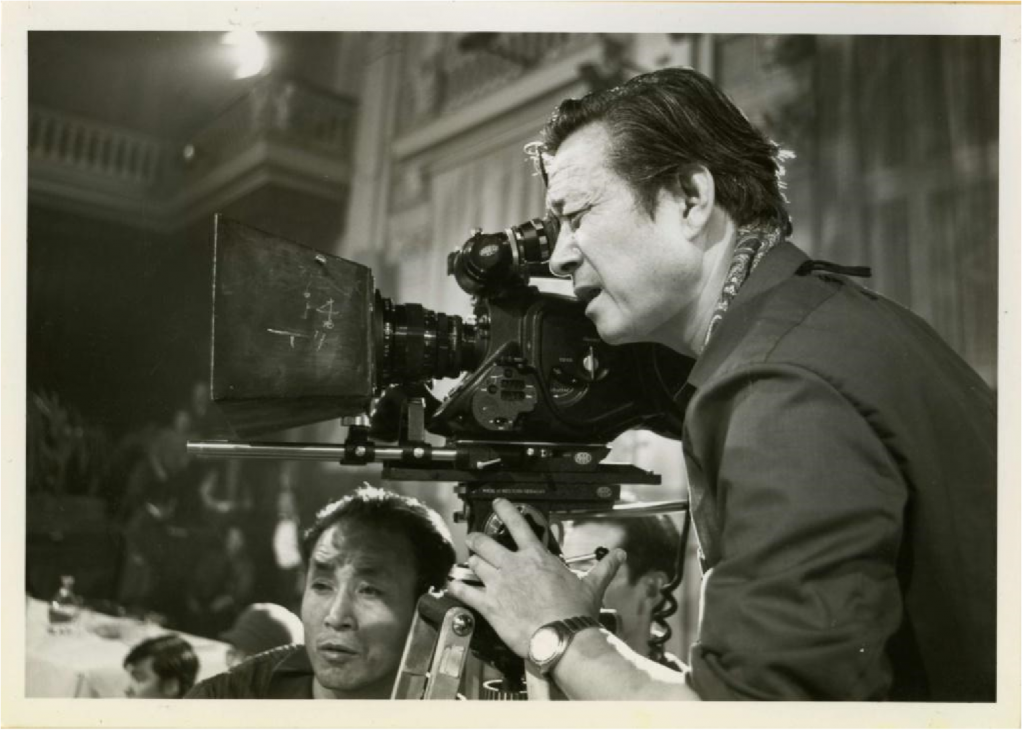
The Emissary Unreturned was the first North Korean film shot abroad, though safely behind the iron curtain in Prague, Czech Republic, which doubled as the Netherlands (with the help of stock footage of The Hague). While Western characters were portrayed previously either by Koreans donning comical make-up, visitors from the Eastern Bloc, or the four U.S. Army soldiers who defected North, this film also featured North Korea’s first European ensemble cast. The film was shot at Barrandov Studios in Prague, where, the following year, the same studios were used for Milos Forman’s Amadeus.
The Emissary Unreturned is the only film on the list not available online with English subtitles. Korean speakers can view it without subtitles HERE, or you can track down a copy during one of YPT’s North Korea tours.

